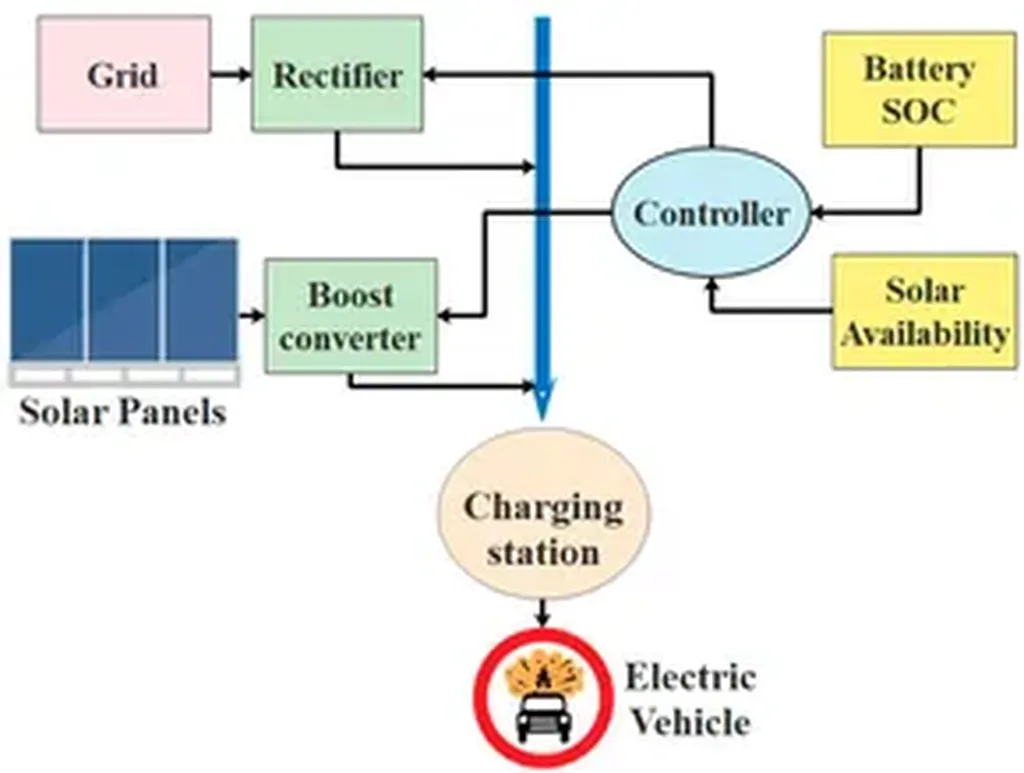In the rapidly evolving landscape of electric vehicles (EVs), researchers are constantly seeking innovative ways to enhance performance and efficiency. A recent study published in the journal *Energies*, titled “Enhancing Electric Vehicle Battery Charging Efficiency Using an Improved Parrot Optimizer and Photovoltaic Systems,” offers a promising solution to some of the persistent challenges in EV technology. Led by Ebrahim Sheykhi from the Faculty of Engineering and Natural Sciences at Istanbul Atlas University, the research introduces an improved version of the Parrot Optimizer (IPO) algorithm, which aims to revolutionize voltage regulation in EVs.
The study addresses a critical issue in the EV industry: the dynamic parameters of electric motors, which are influenced by temperature and various driving cycles. Traditional optimization algorithms have struggled to adapt to these changing conditions, often leading to suboptimal performance. Sheykhi’s improved Parrot Optimizer, however, is designed to intelligently adjust motor parameters for adaptive management, ensuring optimal performance under different scenarios.
One of the standout features of this research is the integration of a photovoltaic (PV) system with energy storage batteries. This setup not only provides a stable and sustainable power supply for the EV’s powertrain but also reduces reliance on traditional grid electricity. “By integrating PV systems, we can prevent excessive voltage line drops and thus voltage imbalances,” Sheykhi explains. This innovation is a significant step towards making EVs more efficient and reliable, addressing one of the major concerns in the energy sector.
The study’s findings are backed by multiple simulations, which demonstrate the effectiveness of the IPO algorithm. The simulations show that the motor performance remains optimal despite changes in parameters, a testament to the algorithm’s adaptability and robustness. This research has profound implications for the energy sector, particularly in the context of renewable energy integration and energy storage solutions.
The commercial impact of this research is substantial. As the world shifts towards cleaner energy solutions, the demand for efficient and reliable EVs is on the rise. The improved Parrot Optimizer and the integration of PV systems offer a viable solution to some of the key challenges in the EV industry. This could lead to significant advancements in EV technology, making electric vehicles more accessible and appealing to consumers.
In the broader context, this research highlights the potential of integrating advanced optimization algorithms with renewable energy systems. As Sheykhi notes, “The proposed intelligent controller ensures significant improvements in EV efficiency and reliability.” This could pave the way for future developments in the field, driving innovation and shaping the future of sustainable transportation.
The study, published in the journal *Energies*, represents a significant contribution to the field of EV technology. It offers a glimpse into the future of electric vehicles, where advanced algorithms and renewable energy systems work in harmony to create more efficient and sustainable transportation solutions. As the world continues to grapple with the challenges of climate change and energy sustainability, research like this is a beacon of hope, driving us towards a cleaner and greener future.

